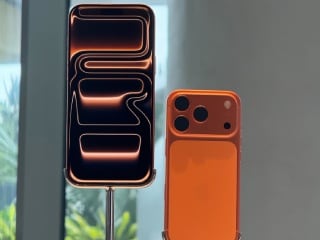- Home
- Social networking
- Social networking Features
- Elon Musk Brawls and Bullies, And His Followers Love Him Anyway
Elon Musk Brawls and Bullies, And His Followers Love Him Anyway
Elon Musk, the founder of Tesla, has emerged as a Twitter brawler with 22 million followers. And some of them seem happy to swing even harder than he does.
Musk made headlines last week when he lashed out at a British cave explorer named Vernon Unsworth, calling him "pedo guy" in now deleted tweets. Unsworth had been involved in the rescue of the young soccer team - 12 boys and their coach - that was dramatically trapped in an underwater cave in Thailand.
Musk had offered to aid the effort by building a kid-size submarine, which Unsworth said in a CNN interview "had absolutely no chance of working."
The news story took a detour away from the miraculous rescue and toward a heated Twitter feud.
Musk eventually apologised. He said, "my words were spoken in anger after Mr. Unsworth said several untruths & suggested I engage in a sexual act with the mini-sub." And, "the fault is mine and mine alone."
The online and investor backlash to Musk's original comments was fierce, sending shares of Tesla, his electric vehicle company, tumbling Monday before recovering.
But on social media his fans were bullish, even lauding the belated apology as "classy," saying it's human nature to hit back or suggesting it made Musk seem more human - even if they also acknowledged that using the derogatory language was wrong. (In the CNN interview, Unsworth had said Musk could "stick his submarine where it hurts," calling the entrepreneur's effort a "PR stunt" that would not have worked.)
Some people seemed to minimise the Tesla CEO's comment even before Musk offered his middle-of-the-night apology: A Guardian reporter posted mail from readers Tuesday saying "I don't think he really meant that literally;" while others felt there may have been context missing; that even if the comment was out of line, it was more about "wounded engineering pride;" or downplayed it by comparing it to President Donald Trump's past comments.
And some who criticised Musk's behaviour drew big swings, called "deplorable" or asked what they had done to help the soccer team.
It was hardly the first time Musk has drawn support online when his behaviour veered into the unconventional - calling an analyst's question boneheaded, sharing an April Fool's tweet about bankruptcy - or as negative headlines mounted about his company. Musk's army of fans online are so legion they've inspired their own memes, or prompted articles calling them "Musketeers."
But experts who study leadership or the psychological dynamics of "followership" - particularly of charismatic leaders who build an emotional connection with people - weren't surprised to see some people look past his unconventional behaviour or stand by him yet again. And they drew comparisons - while noting differences between the two leaders - in how Trump's supporters stick with him even while his behaviour strays far outside presidential norms.
"We call it cognitive tribalism," said Jay Conger, a professor at Claremont McKenna College who studies leadership. When people identify with a larger community, whether they be Trump supporters or fans of Musk's companies, he said, it "kicks in a process called confirmation bias, where people seek out information that confirms what you believe to be true about a leader."
Conger said such identification can be particularly strong when a charismatic leader is involved.
"Part of their allure is the fact that they're rule-breakers," he said. "People tend to give them much more permission to do things that are out of the ordinary, which paradoxically makes them more alluring."
People who support them, he said, "see them as a doorway to a potentially attractive future, and we're often more forgiving of their foibles."
Gabrielle Adams, a professor at the University of Virginia who has studied CEO apologies, said the "cognitive dissonance" people experience when contradictory ideas come into play can result in a response called "motivated reasoning."
"It's essentially this idea that we see things the way we want to see them," she said. People already predisposed to liking Musk, she said, are more likely to see his apology as adequate, while those who tend to not like him could interpret it negatively.
"It's much easier to minimise what he did than to change your perception of who he is," she said. "It's the same phenomena you see with Trump supporters. When he said 'I have some of the most loyal supporters,' he's not wrong."
Some Twitter users argued that Musk's attack was a response to being called out first by Unsworth, a "strike back harder" mentality that Trump also seems to embrace. That can be attractive to people who've identified with a leader, said Peter Harms, a management professor at the University of Alabama.
"We wish we would have more wise and reflective and inhibited [discourse] from leaders, but that's at a cognitive level, not an emotional level," he said. "When they get angry, it's very human. You can identify with it more."
Some research has even shown that when leaders get angry, people perform better under certain circumstances.
"You want to know your leader is emotionally invested, and want to know they'll fight for your values," Harms said.
Another related psychological dynamic, Harms said, is known as "idiosyncrasy credits," or the concept that leaders - particularly successful, charismatic ones - build up goodwill they can spend if they behave erratically.
"When you do great things and you perform at an amazing level, or you've got a great vision, people give you social credits that allow you to act in odd ways that normally you would be punished by," he said. When a leader is seen as being brilliant, "we give you the ability to act odd or even misbehave to a degree."
But he warns that as with any capital, it can be spent down, and only works to a point: "You can use up those credits."
© The Washington Post 2018
Get your daily dose of tech news, reviews, and insights, in under 80 characters on Gadgets 360 Turbo. Connect with fellow tech lovers on our Forum. Follow us on X, Facebook, WhatsApp, Threads and Google News for instant updates. Catch all the action on our YouTube channel.
Related Stories
- Samsung Galaxy Unpacked 2025
- ChatGPT
- Redmi Note 14 Pro+
- iPhone 16
- Apple Vision Pro
- Oneplus 12
- OnePlus Nord CE 3 Lite 5G
- iPhone 13
- Xiaomi 14 Pro
- Oppo Find N3
- Tecno Spark Go (2023)
- Realme V30
- Best Phones Under 25000
- Samsung Galaxy S24 Series
- Cryptocurrency
- iQoo 12
- Samsung Galaxy S24 Ultra
- Giottus
- Samsung Galaxy Z Flip 5
- Apple 'Scary Fast'
- Housefull 5
- GoPro Hero 12 Black Review
- Invincible Season 2
- JioGlass
- HD Ready TV
- Laptop Under 50000
- Smartwatch Under 10000
- Latest Mobile Phones
- Compare Phones
- Realme 16 5G
- Redmi Turbo 5
- Redmi Turbo 5 Max
- Moto G77
- Moto G67
- Realme P4 Power 5G
- Vivo X200T
- Realme Neo 8
- HP HyperX Omen 15
- Acer Chromebook 311 (2026)
- Lenovo Idea Tab Plus
- Realme Pad 3
- HMD Watch P1
- HMD Watch X1
- Haier H5E Series
- Acerpure Nitro Z Series 100-inch QLED TV
- Asus ROG Ally
- Nintendo Switch Lite
- Haier 1.6 Ton 5 Star Inverter Split AC (HSU19G-MZAID5BN-INV)
- Haier 1.6 Ton 5 Star Inverter Split AC (HSU19G-MZAIM5BN-INV)
















